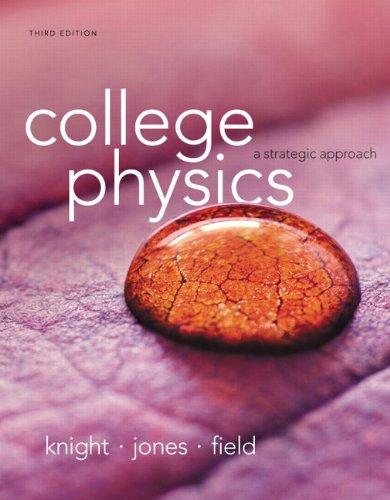We've seen that a man's higher initial acceleration means that a man can outrun a horse over
Question:
We've seen that a man's higher initial acceleration means that a man can outrun a horse over a very short race. A simple-but plausible - model for a sprint by a man and a horse uses the following assumptions: The man accelerates at \(6.0 \mathrm{~m} / \mathrm{s}^{2}\) for \(1.8 \mathrm{~s}\) and then runs at a constant speed. A horse accelerates at a more modest \(5.0 \mathrm{~m} / \mathrm{s}^{2}\) but continues accelerating for \(4.8 \mathrm{~s}\) and then continues at a constant speed. A man and a horse are competing in a \(200 \mathrm{~m}\) race. The man is given a \(100 \mathrm{~m}\) head start, so he begins \(100 \mathrm{~m}\) from the finish line. How much time does the man take to complete the race? How much time does the horse take? Who wins the race?
Step by Step Answer:

College Physics A Strategic Approach
ISBN: 9780321907240
3rd Edition
Authors: Randall D. Knight, Brian Jones, Stuart Field





